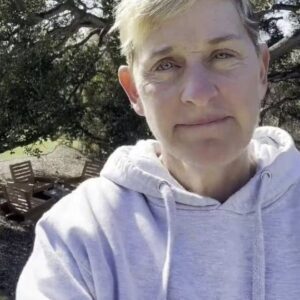When the red and blue lights flashed behind me, I had just pulled into a gas station on 8th and Green. It was a sunny afternoon, around four o’clock, and I knew I hadn’t done anything wrong. No speeding, no rolling stop, not even a forgotten turn signal—something I usually miss. So when the patrol car blocked me in, I figured maybe a light was out or my registration sticker had expired.
I stayed calm. That’s what we’re taught to do: stay calm, stay still, be respectful.
I rolled down my window and waited. The officer approached slowly, sunglasses on, posture relaxed—but with a certain intensity. He asked for my license and registration without much expression.
I glanced at my side mirror. He wasn’t on the radio or typing into a computer—just looking at his phone. That’s when a strange feeling settled over me. Something didn’t feel right.
Eventually, he came back to my window and leaned in, closer than necessary.
“You look familiar,” he said with a slight grin. “Are you on social media?”
I hesitated. “Sorry?”
He held up my ID between two fingers. “Instagram. Got a handle?”
I was stunned. Was this really happening?
He didn’t raise his voice or make a direct threat—but the message was clear. I needed to give him what he wanted if I wanted the interaction to end quickly.
What he didn’t know was that I had a dash cam installed just under the rearview mirror. It wasn’t obvious, but it recorded audio and video—and had a hidden emergency save button near the steering column.
I pressed it.
Just then, another driver pulled up at the next pump. The officer noticed. He immediately stepped back, returned my documents without another word, and walked away.
I waited until he drove off before pulling away and parking a few blocks down. I sat in silence, heart racing, unsure what to do next. But I knew one thing: I had the footage. It captured the whole exchange, from the moment he walked up to the moment he walked away.
That night, I uploaded the clip. I blurred identifying details—my face, my car, my voice. I didn’t mention his name. I simply titled it: “An Unexpected Question During a Traffic Stop.”
I didn’t expect what happened next.
The video gained traction. Thousands of views turned into hundreds of thousands. Comments poured in—some shocked, others sharing similar experiences.
Then came messages from people who had been through something comparable. One person said she’d felt uncomfortable during a stop months ago but hadn’t spoken up. Another said her daughter had once been asked a personal question during a routine traffic encounter.
Then a former department employee reached out. She said she had seen some internal activity that concerned her—unusual database lookups connected to social profiles—and had quietly documented them.
I was floored.
She had screenshots showing unrelated license checks, all matching women with no reported violations. We met in person, and she shared what she had. It confirmed what the video alone could not: this wasn’t a one-time moment. There was a pattern.
A local reporter picked up the story. Then a second article followed, detailing the wider context and concerns. An internal review began, and the officer in question was placed on administrative leave pending a formal inquiry. The department also announced plans to improve oversight on database access.
One day, I received a letter in the mail. No name, no return address. Just a single sentence:
“You weren’t the first. But because of you, someone may be the last.”
This all started with a moment I didn’t expect—an uncomfortable question, a strange silence, and a decision to press a button. But it led to something meaningful: not just visibility, but accountability. Not just for me, but for others who had stayed quiet.
Now, I still carry that dash cam. Not out of fear, but out of confidence. Because sometimes, change begins with telling your story—and choosing not to stay silent.
If you’ve ever wondered whether your voice matters, it does.
And if this story resonates, share it. Because awareness is the first step toward safer communities—and a more respectful future for everyone.





